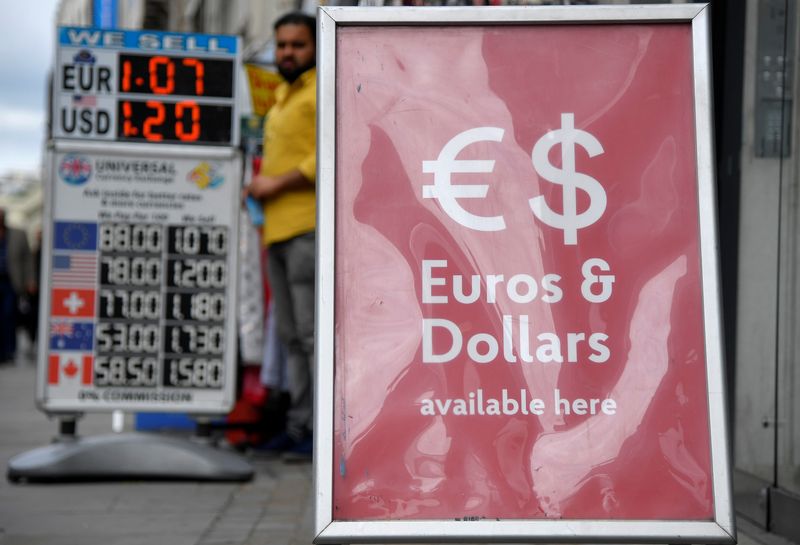By Harry Robertson
LONDON (Reuters) - The pound rose on Monday as the dollar struggled against most currencies except the yen, with investors increasingly talking up sterling as a hot prospect for next year.
Britain's currency was last 0.42% higher against the dollar at $1.27. The euro was down 0.19% against the pound, buying 86.18 pence.
The pound has climbed around 2.5% over the last three months as optimism that the U.S. Federal Reserve will soon be cutting rates has intensified.
That has opened up a gap between British bond yields and their U.S. counterparts, making UK fixed income assets more attractive.
"The prevailing view that Bank of England rate cuts will be lagging those of the Fed in 2024 has supported the pound," said Jane Foley, head of FX strategy at Rabobank.
Investors are currently pricing in around 120 basis points of cuts from the BoE next year but almost 150 bps from the Fed.
Many strategists, Foley included, think sterling can continue to profit from the gap in expectations.
"We see scope for cable to track up to $1.30 on a nine-to-12 month view on rate differentials," she said.
Goldman Sachs (NYSE:GS) thinks sterling is likely to head to $1.35 in 12 months time, a dramatic turnaround from just over a year ago when a chaotic government budget sent the currency to its lowest on record at $1.0327.
British inflation data for November is due on Wednesday before traders head off for the Christmas break. Headline inflation is expected to have slowed to 4.4% year-on-year, from 4.6% in October.
Inflation is running higher than in the U.S. or euro zone, where it stood at 3.1% and 2.4% respectively in November. That is one reason the Bank of England pushed back against expectations for rate cuts last week.

BoE Deputy Governor Ben Broadbent said on Monday that it was too soon to say if wage growth - a driver of inflationary pressure - is on a downward trend.
{{2126|The dodollar index, which tracks the currency against six peers, was last flat on the day at 102.51. The yen fell more than 1% after the Bank of Japan stuck to its ultra-loose monetary policy.